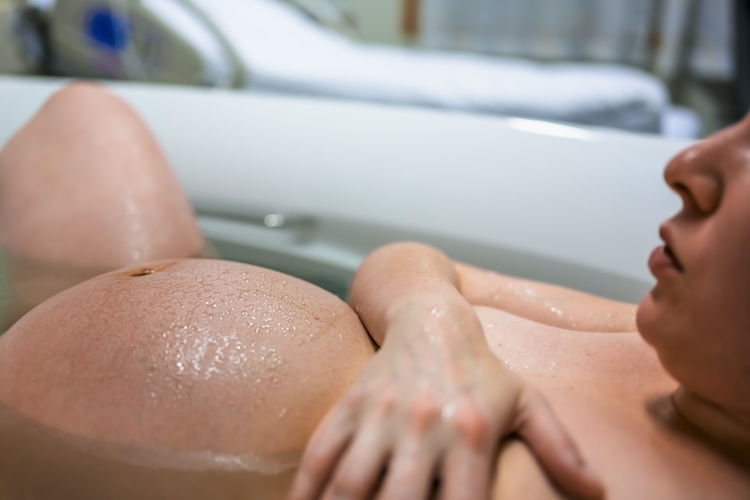A water birth involves mums-to-be going through labour submerged in water, generally up to breast height. There is no evidence that water births pose an additional risk to labour; water births have their risks, and as with any method of labour, your birth team should be equipped to deal with any complications should they arise.
If you are considering a water birth, talk to your doctor, doula or midwife about available facilities and whether or not your pregnancy is safe for a water birth. Here's some information to help inform your decision.
Why water births?
Benefits of water births include:
- Women who labour in water report less painful contractions and increased feelings of being in control.
- The natural pain management of being submerged in water reduces the likelihood mum will need an epidural or other drug. Epidurals cannot be administered in the water, but pain relief gas may be an option if required.
- The first stage of labour tends to go more quickly.
- Potentially a more peaceful entry into the world from the womb.
Is a water birth risky?
There is no evidence to suggest a water birth is more or less risky than any other form of labour. Some potential risks of this method include:
Infection
The birthing pool must be clean and sterile. If you are using a pool from your midwife or a friend, sterilise the pool and buy a new liner. Always follow the guidelines as provided by your birth professional. Always leave the birth pool to urinate and rinse the area afterwards.
Baby swallowing water
Newborns have a natural reflex called the 'dive reflex' which prevents swallowing water by instinctively closing the airways when submerged. It is unlikely the baby will try to breathe in water as they are still attached to the umbilical cord. It is important to keep the water temperature around body temperature; if it is too cold, the baby may be triggered to breathe while underwater.
Immediately after birth, the baby should be gently raised above the water to take their first breath.
Mum or your baby might get too hot
If your body overheats, your baby can too, and this may increase their heart rate. It's important to feel comfortable but not too hot in the water, and to stay hydrated by drinking what you can before labour, and sucking on ice chips during as you need.
Higher risk factors
A water birth is not recommended for women who:
- Have not reached term
- Have a 'high risk' pregnancy
- Are having more than one baby
- The baby seems to be lying in a position other than head down
If you're interested in a water birth, chat to the hospital, birth centre or your midwife and make sure they have the appropriate facilities. Keep in mind that if you are relying on a pool at a hospital or birth centre, it could be in use by another mum to be at the time, so consider preparing an alternative birth plan in case.
Recommended Articles:
https://www.babybunting.com.au/baby-talk-blog/what-is-a-water-birth//
https://www.babybunting.com.au/baby-talk-blog/what-happens-to-your-body-after-birth/



